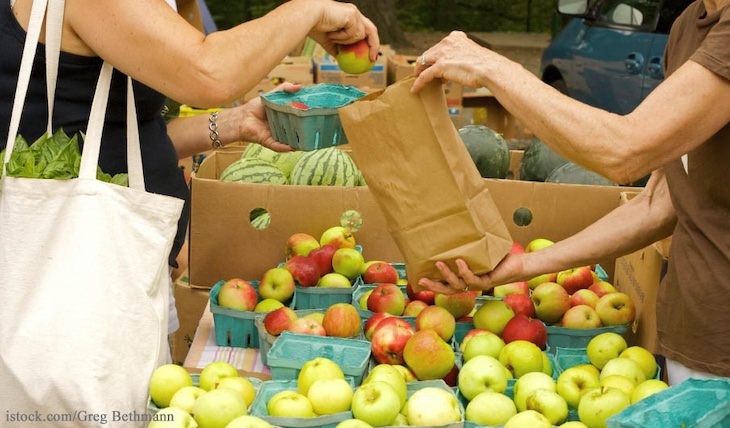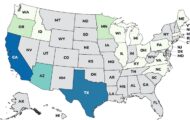It’s National Farmers Market Week. That means it’s also time to focus on Farmers Market food safety. When you visit a farmers market, you can find the freshest produce and sometimes meats and eggs, and you can learn more about these products and how to cook them.

But you must remember that any food, even vegetables and leafy greens, can be contaminated with pathogens that can make you sick.
There are more than 8,000 farmers markets across the country. During the COVID-19 pandemic, farmers markets were an essential source of health food for many communities.
But how safe is the food you buy at farmers markets? It depends. There are some warning signs to look for and ways to protect ourself.
Most farmers markets do not offer food washing stands, so it’s a good idea to bring hand wipes with you. And remember that these outside venues mean the food will be exposed to dirt and bugs, so always wash produce before you eat it. If you bring reusable bags with you, make sure that you wash them frequently and clean all areas where you put them down, especially the kitchen counter. Bring an insulted bag or cooler with you so it stays cold on the trip home.
First, pay attention to the vendors’ food safety practices as you shop. Check the stand’s overall cleanliness. The vendor should wear gloves (and wear them properly, which means changing them frequently and not using them as an excuse to handle food improperly), and always use clean utensils. Garbage cans should be covered and the vendor should have coolers packed with ice for perishable items.
Visit the farmers market early for best selection. Look over the produce before you buy it. All should be firm and clean and not have mold, soft spots, or bruising. Avoid produce that is broken or has cuts, since those are places for bacteria to hide and grow rapidly inside the fruit or vegetable. And only buy juice, cider, and honey that has been pasteurized. Always refrigerate produce as soon as you get home.
If you buy eggs at a farmers market, they should be properly chilled at 40°F or below. Make sure the eggs are clean and the shells aren’t cracked. Once the eggs are washed, they must be stored in covered containers.
Only buy pasteurized milk and dairy products. If dairy is labeled “for animal use only,” it has not been pasteurized to destroy pathogens. Thee items should also only be sold chilled.
Meat should be kept in closed coolers with adequate amounts of ice. When you buy meat, refrigerate it within two hours. And separate raw meats and poultry from ready to eat foods.
Enjoy your time spent at these venues, now that you know about Farmers Market food safety.




